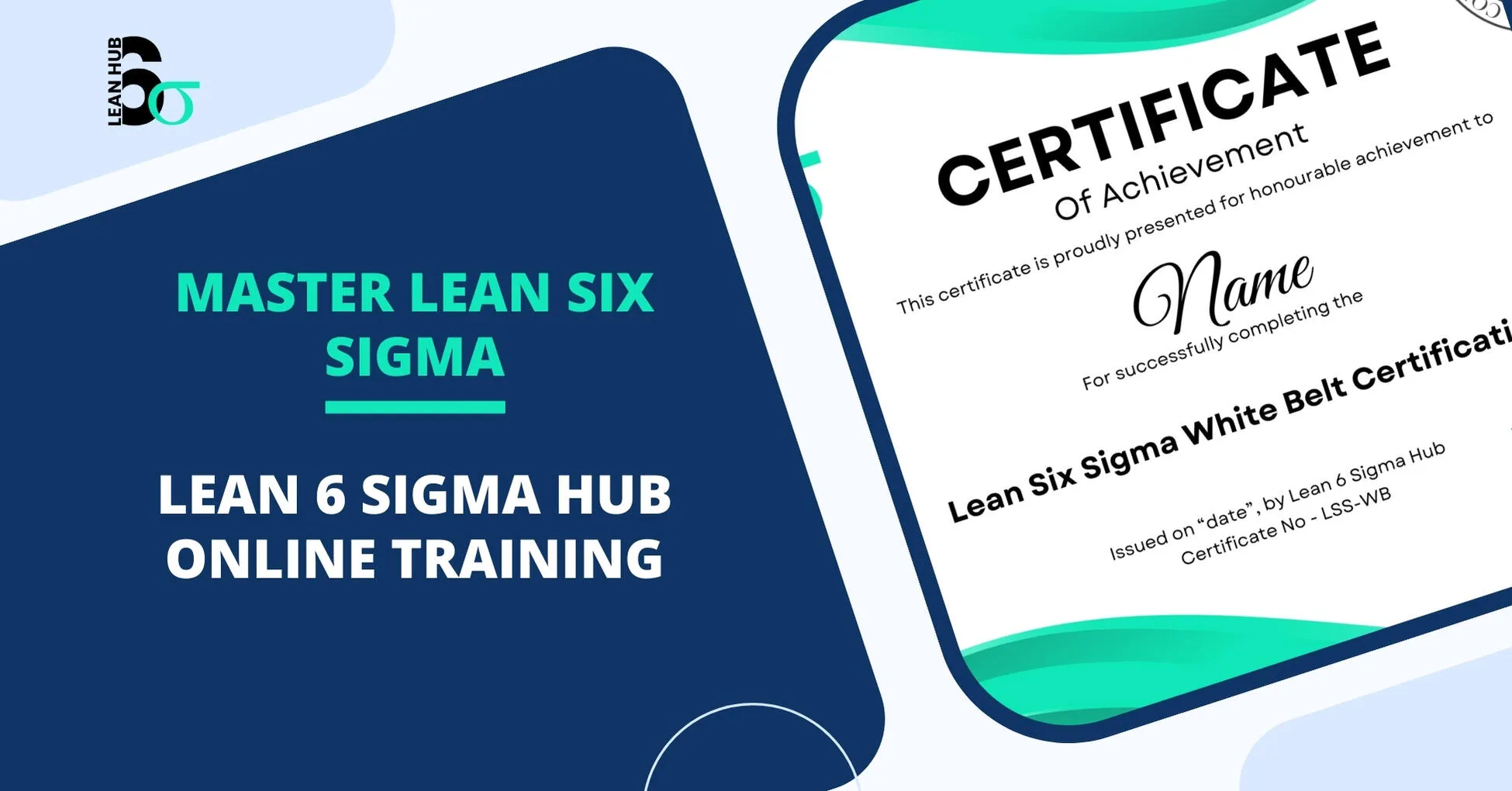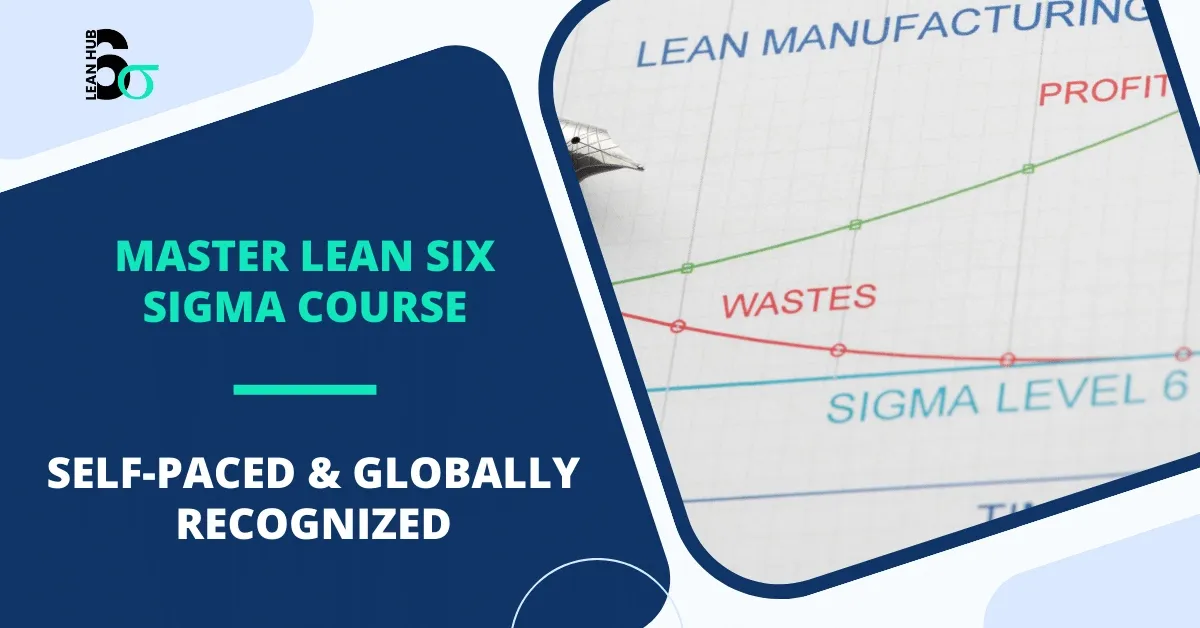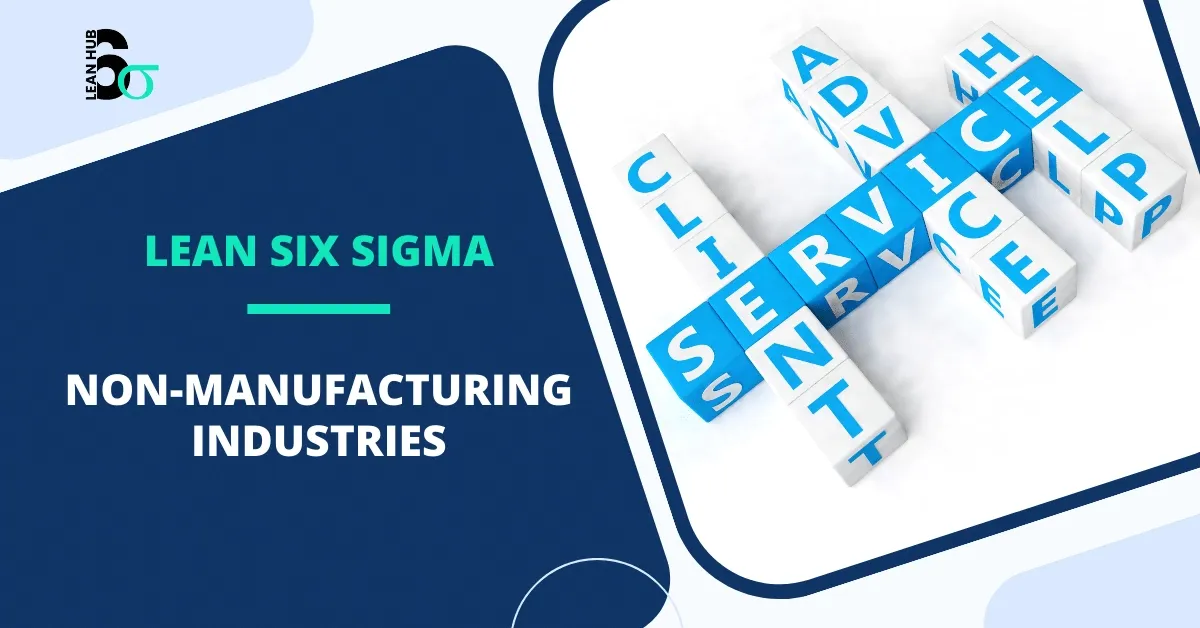In today’s fast-paced world, efficiency and quality are more important than ever for businesses striving to stay competitive. That’s where Lean Six Sigma comes in—a proven methodology that combines process improvement and waste reduction to drive outstanding results. But with hectic schedules and diverse commitments, finding time for traditional training can be a challenge.
Thankfully, online Lean Six Sigma training offers a flexible and accessible solution. We can now gain valuable skills and certifications from the comfort of our homes or offices, without sacrificing quality. Whether we’re looking to enhance our careers or improve our organization’s processes, this training equips us with the tools to make a real impact.
What Is Lean Six Sigma?
Lean Six Sigma combines Lean principles and Six Sigma methodologies to optimize processes by reducing waste and minimizing defects. It’s widely used to enhance efficiency, quality, and customer satisfaction in various industries.
Key Principles Of Lean Six Sigma
- Focus On Customer Needs
Delivering value to the customer is central to Lean Six Sigma. Success depends on identifying and acting on customer-defined quality (CTQ) metrics.
- Eliminate Waste
Removing unnecessary steps and wasteful activities increases productivity. Eight types of waste include defects, overproduction, and waiting.
- Reduce Variation
Process improvements are based on identifying and minimizing variability using tools like DMAIC (Define, Measure, Analyze, Improve, Control).
- Empower Team Collaboration
Cross-functional teamwork drives innovation and sustainable improvements. Engaging employees strengthens accountability and results.
- Data-Driven Decisions
Using data ensures objectivity and effective decision-making. Statistical methods support analyzing trends and solving problems.
- Career Advancement
Lean Six Sigma certifications, such as Yellow Belt and Black Belt, enhance resumes and increase job prospects across industries.
- Higher Earning Potential
Certified professionals often earn more due to their expertise in efficiency and process improvement.
- Organizational Impact
Employees with Lean Six Sigma certification improve workflows, reduce costs, and increase organizational profitability.
- Problem-Solving Skills
Certification equips individuals with tools to identify root causes of issues and implement long-term solutions.
- Global Recognition
Lean Six Sigma certifications are highly valued internationally, reflecting a widely accepted standard of process excellence.
Overview Of Lean Six Sigma Online Training
Lean Six Sigma online training offers a convenient way to learn essential methodologies for process efficiency and quality improvement. Participants can access comprehensive materials, gain certifications, and enhance skills through interactive platforms.
What To Expect From Online Training
Online Lean Six Sigma training provides structured modules covering core concepts like Lean principles, Six Sigma tools, and DMAIC (Define, Measure, Analyze, Improve, Control). Courses cater to different certification levels, including Yellow, Green, and Black Belts, with in-depth content tailored to each tier of expertise.
Interactive activities, video lessons, quizzes, and case studies reinforce learning, while flexible schedules allow participants to progress at their own pace. Many programs include mentorship from certified professionals and practice exams to prepare for certification tests.
Advantages Of Online Training Over Traditional Methods
Online training eliminates the need for travel, reducing costs and logistical challenges. Participants can access materials anytime and from anywhere, making it ideal for working professionals.
Digital platforms deliver diverse content formats such as recorded lectures and live webinars, enhancing engagement and retention. Self-paced options provide the flexibility to balance training with personal and professional commitments. Additionally, online courses often update content regularly, ensuring learners stay aligned with current methodologies and industry standards.
Top Features To Look For In Lean Six Sigma Online Training
Identifying key features in Lean Six Sigma online training ensures we choose programs that deliver quality education and valuable certifications. These features align with professional goals and industry standards.
Accreditation And Certification
Accreditation guarantees the program meets industry-recognized standards. We recommend selecting courses accredited by organizations such as Council for Six Sigma (CSSC) , IASSC (International Association for Six Sigma Certification) or ASQ (American Society for Quality). Certifications, like Green Belt or Black Belt, provide credentials valued by employers and enhance career prospects.
Course Content And Structure
Comprehensive, well-structured content ensures we acquire practical and theoretical knowledge. Quality courses include Lean principles, Six Sigma methodologies, DMAIC (Define, Measure, Analyze, Improve, Control), and real-world case studies. Modules tailored to different certification levels ensure progressive learning for beginners and advanced practitioners.
Flexibility And Accessibility
Programs offering flexible schedules accommodate our personal and professional commitments. We prefer platforms with mobile-friendly designs, downloadable resources, and 24/7 access to videos or materials. Live or recorded sessions and interactive elements like quizzes enhance engagement for diverse learners.
Pros And Cons Of Lean Six Sigma Online Training
Lean Six Sigma online training offers numerous advantages while presenting some limitations depending on individual needs and learning preferences. Understanding these pros and cons helps learners make informed decisions about their training choices.
Pros
- Flexibility: Online training accommodates busy schedules, allowing learners to access materials and attend sessions anytime, anywhere. This flexibility is ideal for professionals balancing work and personal commitments.
- Cost-Effectiveness: By eliminating travel expenses and physical classroom costs, online programs offer affordable training options without compromising quality.
- Diverse Learning Formats: Courses include videos, case studies, interactive quizzes, and downloadable resources, catering to different learning styles and enhancing engagement.
- Global Accessibility: Learners worldwide can enroll in accredited programs and gain certifications, breaking geographical barriers common in traditional training.
- Mentored Support: Many online courses provide expert-led guidance, where certified professionals offer insights, answer questions, and facilitate problem-solving discussions.
- Self-Paced Learning: Participants can progress through modules at their own speed, customizing their learning experience based on their grasp of topics.
- Limited Hands-On Practice: Online training often lacks practical in-person exercises, which are integral for mastering tools like process mapping and root cause analysis.
- Technology Dependence: Learners require reliable internet connections and compatible devices; technical issues can disrupt the learning process.
- Potential Isolation: Online formats sometimes lack face-to-face interaction, which may reduce networking opportunities and collaborative discussions.
- Motivation Challenges: Without physical class structures, staying disciplined and maintaining progress in self-paced programs can be difficult for some learners.
- Accreditation Variability: Not all online programs meet industry standards, so carefully selecting courses from recognized organizations like CSSC, IASSC or ASQ becomes essential.
By weighing these factors, learners can determine if Lean Six Sigma online training aligns with their career goals and learning preferences.
Best Lean Six Sigma Online Training Programs
Selecting the right Lean Six Sigma online training program is crucial for achieving career advancement. We’ve identified top providers, platforms, and course comparisons to help in making informed decisions.
Popular Providers And Platforms
Several providers offer accredited Lean Six Sigma certifications with global recognition. Key platforms include:
- Coursera: Offers partnerships with universities like Rutgers and the University of Illinois. Their programs cover all certification levels, with flexible schedules and extensive study resources.
- Udemy: Features cost-effective courses with lifetime access, self-paced learning modules, and varied pricing options for beginner to advanced levels.
- Lean 6 Sigma Hub Provides globally recognized certifications and expert-led training materials, catering to professionals aiming for extensive industry credibility.
These platforms cater to diverse needs by offering flexible schedules, hands-on resources, and globally recognized credentials.
It’s essential to match the course’s flexibility, price, and recognition with personal goals. Programs offering practice exams, mentoring, and project-based learning generally ensure better preparation for certification.
Key Takeaways
- Lean Six Sigma Methodology: Combines Lean principles and Six Sigma tools to optimize processes, reduce waste, and improve quality, benefiting businesses and professionals across industries.
- Advantages of Online Training: Offers flexibility, affordability, and global accessibility, allowing learners to gain certifications at their own pace without compromising quality.
- Key Features of Quality Programs: Look for accreditation from recognized organizations (IASSC, ASQ, CSSC), comprehensive content covering DMAIC principles, and flexible, interactive learning formats.
- Pros and Cons: Online training is cost-effective and convenient but may lack hands-on practice and face-to-face interaction, which can impact networking and skill reinforcement.
- Career and Organizational Impact: Certifications enhance resumes, increase earning potential, and equip professionals with the skills to improve workflows and drive results within organizations.
Conclusion
Lean Six Sigma online training offers a practical and accessible way to develop valuable skills that drive process improvement and career growth. By choosing a reputable program with recognized accreditation, we can gain globally respected certifications and expertise in efficiency and quality enhancement.
The flexibility, cost-effectiveness, and diverse learning formats of online training make it an ideal choice for professionals balancing busy schedules. With the right course, we’re not just learning methodologies—we’re equipping ourselves to make a lasting impact on our organizations and industries.
Frequently Asked Questions
What is Lean Six Sigma, and why is it important for businesses?
Lean Six Sigma is a methodology that combines Lean principles and Six Sigma tools to improve processes by reducing waste and minimizing defects. It helps businesses enhance efficiency, quality, and customer satisfaction, making it crucial for staying competitive in today’s market.
What are the main benefits of Lean Six Sigma online training?
Lean Six Sigma online training offers flexibility, cost-effectiveness, and global accessibility. It allows learners to study at their own pace, eliminates travel expenses, and provides diverse resources like mentorship, interactive modules, and practice exams to prepare for certifications.
What certifications can I earn in Lean Six Sigma?
Lean Six Sigma offers certifications such as Yellow Belt, Green Belt, and Black Belt. These certifications demonstrate expertise in process improvement, problem-solving, and leadership, enhancing career prospects and earning potential.
How can Lean Six Sigma certifications advance my career?
Lean Six Sigma certifications validate your skills in process optimization and waste reduction, making you a valuable asset to employers. Certified professionals often enjoy better career opportunities, promotions, higher salaries, and recognition in various industries.
What should I look for in a Lean Six Sigma online training program?
Look for accredited courses from recognized organizations like IASSC or ASQ. Ensure the program offers comprehensive content, flexible schedules, practice exams, mentorship, and global certification recognition for top-quality training.
What are the advantages of online Lean Six Sigma training over traditional methods?
Online training offers the convenience of self-paced learning, flexibility, lower costs, and no need for travel. It also provides diverse materials, interactive platforms, and access to global expertise from the comfort of your home or workplace.
Are there any downsides to Lean Six Sigma online training?
While online training offers flexibility, it may lack hands-on practice, rely on technology, and require self-motivation. Learners may also face challenges if programs lack accreditation or quality content, so careful provider selection is key.
Which platforms offer the best Lean Six Sigma online training programs?
Top platforms include Coursera, Udemy, ASQ, GoLeanSixSigma.com, and IASSC-accredited providers. These platforms offer accredited courses with global recognition, structured modules, mentorship, and practice exams to prepare for certifications.
What is the DMAIC process in Lean Six Sigma?
DMAIC stands for Define, Measure, Analyze, Improve, and Control. It is a structured approach used in Lean Six Sigma to optimize processes, identify problems, reduce defects, and ensure sustainable improvements in quality and efficiency.
Is Lean Six Sigma relevant across industries?
Yes, Lean Six Sigma is applicable to numerous industries, including manufacturing, healthcare, IT, finance, and logistics. Its principles help organizations improve processes, reduce costs, enhance customer satisfaction, and drive overall business improvement.








